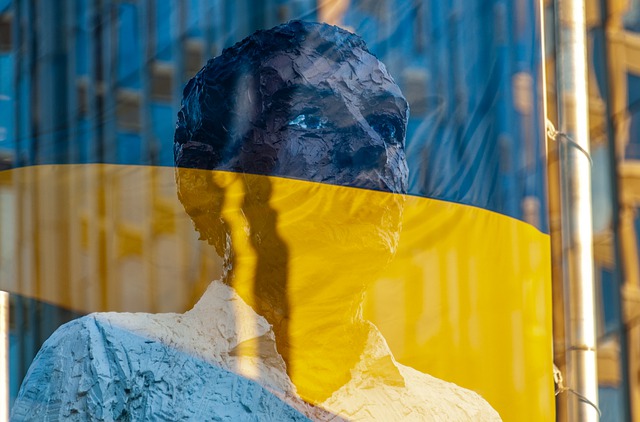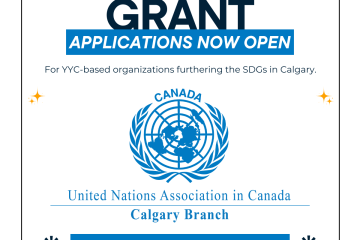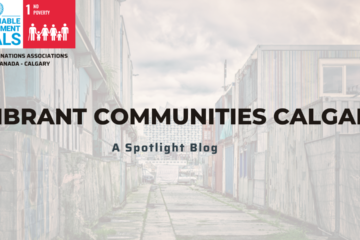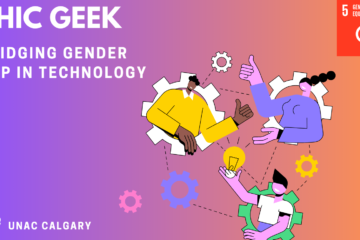“Immoral War, Immoral Peace?”
By: Angelina Patoka
When Russia invaded Ukraine this February, some lamented the inevitability thereof as part of a ‘great’ political ‘game’ in line with the re-emergence of great power politics amid an anticipated shift in the political polarity of the world. Ukraine now stands united, its president a beacon of freedom and patriotism. Likewise, the Western world reaffirmed its unity in celebration of the triumph of Western idealism that some labelled as the ‘unexpected’ resilience of democracy. Beyond such ideation, many Westerners were caught off guard by the notion of war in Europe in the twenty-first century and by the aggressive and criminal conduct of the Russians.
As a person who was born in Zaporizhzhia, Ukraine and has relatives in the city, it remains a period of mixed emotions and thoughts that put much of what I am engaged in as a student under serious critical reevaluation.
Aside from reflecting upon and acknowledging the immeasurable amount of privileges I possess once again, it brought me to a point of academic dissonance in my career as a junior political scientist.
How can I find justifications for any of Russia’s geopolitical interests while it is actively bombing hospitals and schools? How does one negotiate peace with a state that overtly expresses its intentions to commit genocide against Ukrainians? I can’t.
To be honest, it all truly began in the latter part of 2021. During the previous school term I had a few discussions with a professor who is a staunch realist.* Perhaps in a futile attempt to conceptualize and operationalize political processes through the lens of liberalism and constructivism, I desperately tried to convey that studying and understanding one’s point of views in depth (beyond things like economic interests) could lead to effective conflict resolution and the evasion or the end of conflict and war.
He repeatedly disagreed and countered all my points by repeatedly asking “did humans change over the course of history?” In light of my knowledge of ongoing conflicts and crimes against humanity worldwide it was difficult to disagree with him completely.
These conversations stayed with me as I continually tried to look for answers for myself. I kept asking “did I get everything wrong?”
Fast forward to March 2022. As the fog of war cleared and I slowly moved past the anguish, two topics consistently sprung up in my mind.
The mainstream mythification of war and tragedy among white populations and the de facto precedence of the international status quo over sustainable peace and sustainable humanitarianism. Hence this blog post will unravel the thoughts I managed to assemble over the last two months or so. Throughout this ongoing war and my personal academic crisis, if you will.
Perhaps the biggest shock aside from the unnecessary humanitarian catastrophe was just how deeply unreasonable authoritarian and totalitarian states could be. Nothing is off the table, and contrary to arguments of offensive realists, there was zero rationality in invasion. In fact, many realists would contend that Russia is not behaving irrationally (or at least according to historical precedence). I disagree.
Russia acted very irrationally. In my opinion, it underestimated something that it never bothered to understand despite existing as an heterogeneous state for centuries. The same problem plagues Europe and Ukraine as a whole, and as one could imagine, many aspects of Western academia. That is eurocentrism, white supremacy, and racism.
Needless to say, I do not intend to belittle and disparage the horrific tragedies that are happening in Ukraine nor diminish the humanitarian crisis in Europe. However, geography and race are probably the key features of the global reaction to this conflict. Journalists from numerous media outlets described the situation as a tragedy because those affected are ‘civilized’ and ‘educated’ unlike ‘other’ refugees. Curious statements in face of the fact that some of the oldest universities in the world are located in Egypt and Iraq.
Unlike the refugees of the Russo-Ukrainian war, those others’ escape from their homes was frequently described as a nuisance and a burden by multiple media outlets, statespeople, and citizens. The implication here is not aimed at Syrian refugees alone either, as North America grapples with its own downplayed humanitarian crisis in the southern border of the United States, where it rejects, imprisons, and deports non-white ‘others’ back to Mexico, Haiti, and so on.
The public response (while wholeheartedly welcome and deeply appreciated) is equally mind-numbing. Countless donations, open borders, fundraisers, volunteerism, and people in host countries opening the doors to their homes to Ukrainian refugees. The global business sector united in support as well. Lego, for example, sold models of Molotov cocktails and President Zelenskyy. Can you imagine selling Lego models of Molotov cocktails to raise money for Syria? Or Palestine? Or Tigray? Or Yemen? Just ask yourself, why is the former less controversial?
This is not a case of whataboutism. The Eurocentric global community chooses to close its eyes on current inconvenient realities as well. For instance, the reports of blatant racism in Ukraine towards foreigners, mainly foreign students, from Africa and Asia. This includes violence, refusal of services, and subsequent denial of any racism.
Few outlets report on the struggles of non-white Ukrainians and people of colour (POC) stuck in Ukraine, or at the Polish border, or the logistical difficulties that prevent governments from evacuating their citizens out of the conflict zone. It included thousands of medical students who studied in my hometown, and were recently evacuated to Romania and Slovakia.
In addition, few outlets report on the choice of Ukrainian POC to stay and help the war effort, like MP Zhan Beleniuk, and the fact that hundreds of POC volunteer to fight in Ukraine’s International Legion, like former United States Navy Senior Chief Petty Officer Malcolm Nance.
The war is conveniently illustrated as affecting white people alone, which unfortunately seems to elevate it above conflicts and wars that affect predominantly non-white people. Above equally devastating conflicts in Myanmar and Palestine, for example, which continue to rage on for decades.
Blatant racism aside, the treatment of POC by some Ukrainians absolutely baffles me because the deeper context that underscores the war entails Ukraine’s centuries’ long struggle against Russian colonialism and imperialism. Now under the label of the neo-colonial spread of the “Russian world,” or Russicism. A term that is used more frequently to describe Russian colonialism, beyond mere linguistic domination (not that it is insignificant on its own), by Eastern Europeans and political figures that included the late Chechen leader and president Dzhokhar Dudayev.
How some Ukrainians were still incapable of overlooking racism and eurocentrism during their time of great need and great unity, even though many of them argue over the same things with regard to long-time colonialism and (Russian) supremacy, is truly distressing.
We are all human. Every person stuck in a war zone deserves safe passage. Every person is entitled to aid and dignity. These are some of the principles entrenched in many UN documents, including the famous Universal Declaration of Human Rights. It is also entrenched as one of the UN Development Goals, as Goal 10 of the UNSDGs addresses global inequalities. If Ukraine wants to acquire the status of a Member States of the European Union (EU), it ought to address these issues and consider anti-racist measures in its postwar years.
Racism does not rest, and as implied (or rather: obviously) EU countries aren’t exempt from its perils either. The consequences of the war in Ukraine display an unnerving global tendency. One that is possibly in line with the unwillingness of the international world order to address its past (colonial and otherwise) and implement reforms within the present global order to be more equal as per Goal 10, but also to foster peace, justice, and strong institutions as per Goal 16.
I am referring to the precedence of the international status quo over sustainable peace and sustainable humanitarianism. Numerous commentators state that unlike other conflicts, the Russo-Ukrainian war is significant because it is an attack on a sovereign state by another sovereign state, unlike the civil war in Syria.
This underlines the notion that sovereignty is sacred in the current international order and under international law. It is so sacred that UN Peacemaking, Peacekeeping and Peacebuilding troops can only be deployed when the host state invites them. Furthermore, unless peace enforcement is authorized, UN troops can use force only in self defense. This is one of the reasons why the Peacekeeping troops from the United Nations Assistance Mission for Rwanda (UNAMIR) were unable to directly intervene in the Genocide despite their presence.**
Does the argument hold? Georgia was also a sovereign country that Russia attacked in 2008. The Russian Federation engaged in its usual tactics and thus indiscriminately amassed war crimes. Beyond Georgia, it is difficult to overlook the carnage in Aleppo and Grozny. None of those tragedies yielded the same global response as the war in Ukraine. I am very grateful for that, but at the same time I find the former very distressing.
Yet insofar as this argument is concerned even Ukraine is unsafe, despite its own privilege as a European country. Russia’s vetoes as a permanent member of the United Nations Security Council (UNSC) prevented any aid from deploying to the Donbas region in 2014. As it did with Syria and other places with Russian military presence.
The self-defeating mechanisms of the UNSC, where totalitarian-authoritarian states like Russia and China get a seat at the table, exposes once more the questionable global obsession with maintaining the status quo and the disadvantages thereof. Wars begin and continue. Refugee crises occur and some get forgotten. Some refugee crises are so profound that they constitute the support for an entire nation, as the United Nations Relief and Works Agency for Palestine Refugees in the Near East (UNRWA) has done since 1949.
Even the non-binding agreements of the UN ought to come under fire. I mentioned the Responsibility to Protect (R2P) in another post. It consists of an international commitment to never again fail “to halt the mass atrocity crimes of genocide, war crimes, ethnic cleansing and crimes against humanity” even when a sovereign government fails to prevent such tragedies within its borders.
It is a commendable approach to inhumanity though it remains a non-binding agreement. Despite some success, the principle of R2P failed to prevent and bring an end to numerous crimes against humanity. Including the ongoing war crimes in Ukraine. Even though international sanctions and aid from other sovereign states played a more significant role, as per the principle of R2P, war crimes including ethnic cleansing are still being committed by Russia.
The shortcomings of R2P in this case are burdened by the national interests of greater states. Just like the international community fails to respond to the Uyghur genocide due to global economic interests linked to China. Though even this is an oversimplification.*** Ukraine is not caught in an identical conundrum as the Uyghur people, but the eerily similar focus on avoiding any possible transformative change in global and international institutions proves to be harmful to humanity. In my opinion.
Perhaps one would argue that isolating Russia is that transformative change, but I digress. Treating Russia as an aggressive (now pariah) state is nothing new. The fear is primarily in including Ukraine in Western organizations, for example. The fear of considering de jure sovereignty for Palestinians, or for Chechens, the fear of excluding not just Russia out of UN bodies like the Human Rights Council but addressing why states like China and Saudi Arabia (who abstained from the United Nations vote that adopted the Universal Declaration of Human Rights) get the privilege to sit on the same council despite domestic violations of human rights. Goal 16 promotes peace, justice, and strong institutions, yet it is difficult to appreciate its productivity amid so many political and nonpolitical variables.
However, I don’t believe that all is hopeless. War is ultimately a tragic human affair and I firmly believe that its ending is typically, tragically inhuman. What I advocate for, as per Goal 16, is that conflict resolution ought to be based on common human principles. If our common human perspectives were negligible in war, why do countries like Russia try to hide and deny their war crimes? If war and conflict were based on power dynamics alone, why do people struggle against their oppressors and aggressors against all odds?
Humanity and humanism were underestimated as far back as the Siege of Melos. Much of the world thought Ukraine would fall to Russia’s supposed military might, and some even suggested that Ukraine preemptively surrenders. Ukraine will never surrender because it values its sovereignty and the capacity, the chance, to practice human rights without the yoke of the Russian world. It is a struggle that survived many conventional defeats and it will survive the current war as well. I take inspiration from my homeland, that nothing is ever truly lost and nothing is truly as fearsome as it appears.
My personal crisis as a Junior political scientist remains unresolved, but I came to the conclusion that war is the result of multivariate human affairs and much of what war revolves around is the underlying argument over who is more human. Who deserves more because they are more human. Either because one ascribes to a ‘correct’ ideology or looks the ‘right’ way. We should not forget that we are all humans. Humanity is the basis for contemporary international and global relations, and international law. We should not dismiss and simplify its aspects as futile attempts of humanizing and ‘softening’ power and politics.
Aristotle would argue that engaging in (‘good’****) politics is the most human thing we can engage in, that the two are not mutually exclusive. Although I take issue with some of Aristotle’s writings, I do agree with him on this. Do not forget humanity.
Слава Україні! (Glory to Ukraine)
Слава біженцям! (Glory to refugees)
Слава народам світу! (Glory to the nations of the world)
About Angelina:
Angelina Patoka is an University of Calgary undergraduate student in her fourth year of her combined political science and international relations degree. She is interested in all aspects of global governance, particularly security issues stemming from international conflicts and disagreements. Angelina began volunteering with UNAC Calgary in late 2020 and she is excited to share and discuss how Canada is affected by ever-evolving globalism.
—————————–
You can donate to the citizens of Ukraine through these sources:
- UNICEF – Help Ukraine: https://secure.unicef.ca/page/98630/donate/1?ea.tracking.id=22DIEM02GSE&gclid=CjwKCAjwo8-SBhAlEiwAopc9W1LUdCkHIUZ5kFBfwEsejEh7VBoi_lKo8jsppJ7efeswwUtJZ_UbuhoCnkkQAvD_BwE.
- Voices of Children: https://voices.org.ua/en/.
- Everybody Can (supports disabled children in Ukraine): https://dobro.ua/en/member/operator/mbf-kozhen-mozhe/.
- Fight for Right (helping Ukrainians with disabilities in the war zone): https://eng.ffr.org.ua.
- Kyiv Pride: https://kyivpride.org/en/donate/.
- Insight Ukraine (legal and psychological aid for Ukraine’s LGBTQIA+ community): https://www.insight-ukraine.org/en/.
- United Help Ukraine: https://unitedhelpukraine.org.
- Vostok-SOS: https://vostok-sos.org/en/about/mission/.
- UNICEF – State of Palestine Appeal: https://www.unicef.org/appeals/state-of-palestine.
- The United Nations Relief and Works Agency for Palestine Refugees in the Near East (UNRWA): https://www.unrwa.org.
- Save Uighur (collects data on the Uyghur genocide, including spreading information about the genocide in Arabic): https://www.saveuighur.org/donate/.
- Islamic Relief Worldwide – Aiding Chechens: https://www.islamic-relief.org/changing-lives-in-chechnya/.
- UNICEF – Yemen Aid: https://www.unicef.org/emergencies/yemen-crisis.
- UNHCR Canada – Yemen Aid: https://give.unhcr.ca/page/52680/donate/1?ea.tracking.id=SEM22_Yemen&utm_source=google&utm_medium=cpc&utm_campaign=CA_PS_EN_YE&gclid=CjwKCAjwo8-SBhAlEiwAopc9W4Vv8QNT8VpkbAwOHYXhtNkQYEXMvf7kxSFQICx76r-X-rz6Eh-LbhoCVgAQAvD_BwE&gclsrc=aw.ds.
- Médecins Sans Frontiers Canada: https://action.msf.ca/site/Donation2?df_id=2260&mfc_pref=T&2260.donation=form1&s_locale=en_CA&utm_source=google&utm_medium=cpc&utm_campaign=evergreen&utm_content=textad&s_src=22-SEM&s_subsrc=google&gclid=CjwKCAjwo8-SBhAlEiwAopc9W5BS3qWg7ZH3B1GHc3YAHpmhoTlKSwH_eHv_sUukGCxJZH2fA1wOiBoCcTgQAvD_BwE.
- UAnimals (rescuing animals in Ukraine’s war zone): https://www.patreon.com/uanimals.
———————-
Writer’s notes:
*Realism being one of the main political theoretical umbrellas in the field. It argues that politics is an endless battle of self-interests and political dominance rather than cooperation, and the maximisation of the accumulation of a state’s power.
**I would like to add that obviously there are other reasons for such a weak global response. For instance, the budget problems within the UN and the US-led withdrawal of troops from international missions following its earlier failures in Somalia.
***This is not the sole reason, but it is probably the most significant one.
****Aristotle frames ‘good’ politics as political practices free of corruption and the abuse of power, since he argues that the best and most desirable politicians are attentive problem-solvers. Akin to physicians. Aristotle relates the overall process to what is required to live a ‘good life’ within a political collective.



